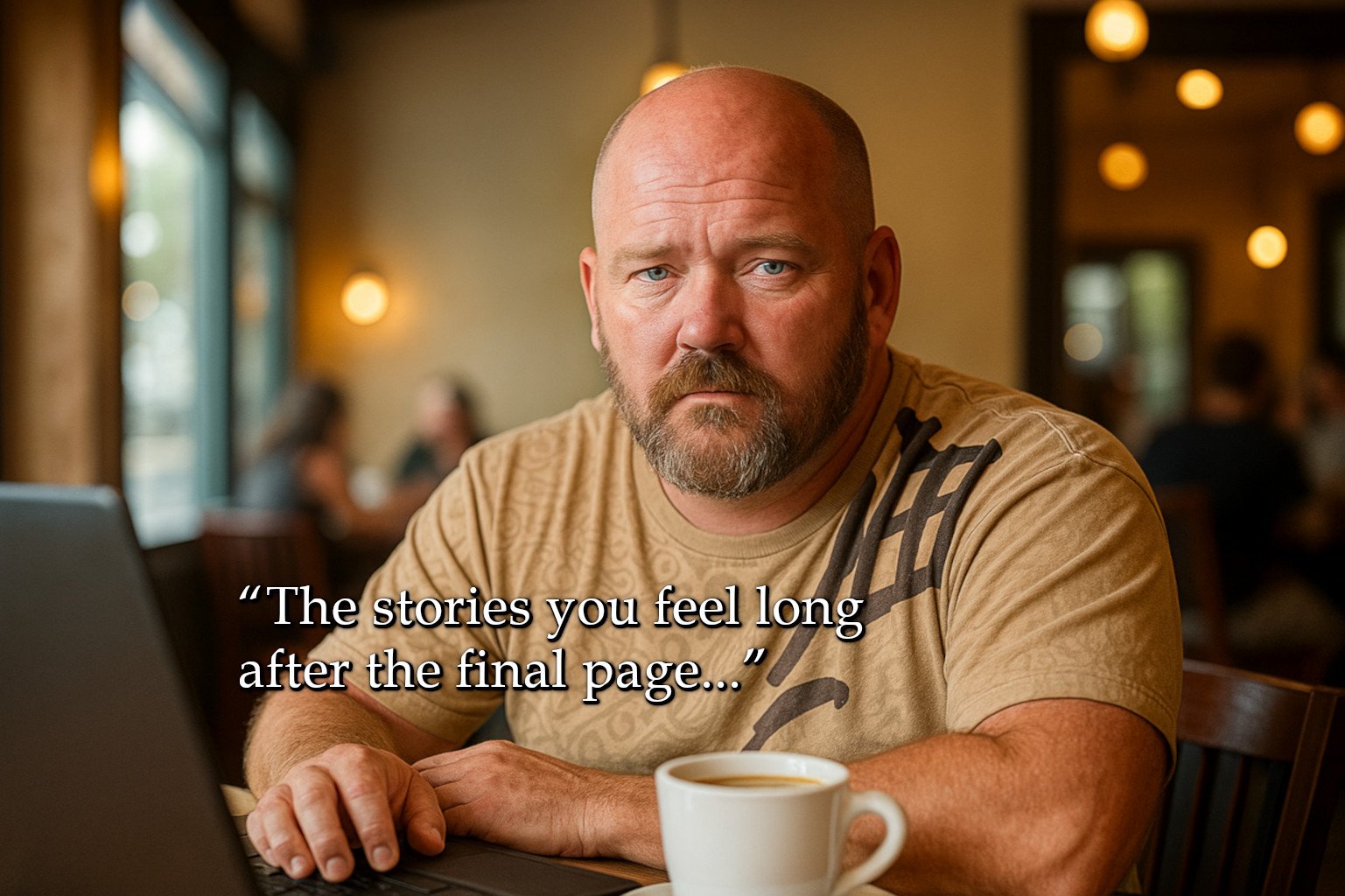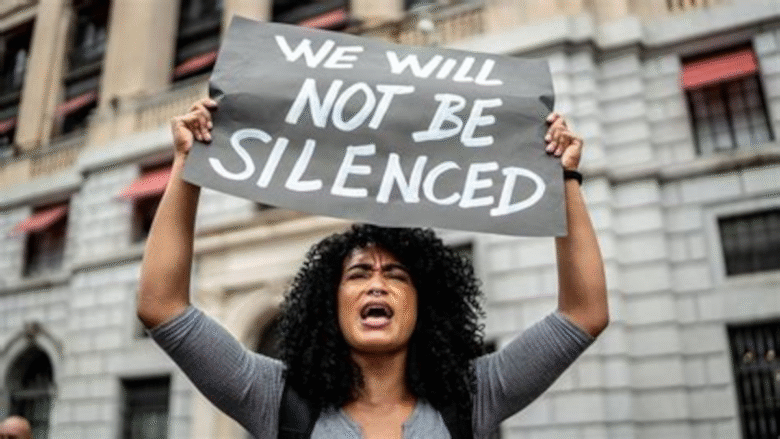When the First Amendment feels like it’s under attack, that’s because it is. But the government knows better, even though it tries and has succeeded in the past on different occasions. The fact that they do it behind our backs means they know it’s not right. They just try to get away with it every once in a while. The thing is that there is a bigger problem here, and it’s less obvious.
It won’t be after I point it out!
Years ago, before Caitlin Clark joined the league, we were talking about the pay gap and why WNBA players don’t get paid as much as NBA players. I commented on a post on Facebook that the league didn’t make as much money. I backed it up with facts, and I hit Enter. That’s when I got a notice that I had violated community standards. What standards could I have violated when I was only presenting the facts?
The WNBA has struggled to turn a profit since its launch, with reports of annual losses ranging from $10 million a year in earlier seasons to as much as $40–50 million in recent years. Those gaps have been covered in large part by the NBA, which still owns a sizable stake in the league and subsidizes operations to the tune of roughly $10–15 million annually. Many WNBA teams are also owned by NBA owners, further tying the leagues together. Even after outside investors bought into the WNBA in 2022, the NBA retained effective control and continues to provide the infrastructure, resources, and marketing muscle needed to keep it running. In short, the WNBA is not yet self-sustaining, and its survival depends heavily on NBA support.
Which brings me back to that Facebook post. I wasn’t slinging insults. I wasn’t making up figures. I was pointing out a reality that plenty of reporters and analysts have already written about. And still, my voice was removed from the conversation.
Coming back to Caitlin Clark, the WNBA is missing a great opportunity. She is bringing the viewers. She’s bringing fans of all ages, including young girls who might aspire to be basketball players themselves. And if they don’t, they still make great fans for the league. If the WNBA wants to eliminate the pay gap, there’s their answer. They have to protect that girl.

I’m an Indiana Fever fan because of her, and I don’t even get to watch her play. She’s out for the season. There goes income the WNBA could appreciate. But it seems to me that there’s an attitude across the league, if you can’t beat her, take her out of the game. That lets me know where their priorities actually are.
But back to the First Amendment, social media monitors themselves aren’t the only ones to blame. If you’re not willing to listen to someone, how do you expect anyone to listen to you? It’s hard at times when you don’t agree with a person. You want to shut them out, and you have the right to do that. But if you cry about freedom of speech afterward, check yourself.
The First Amendment
Congress shall make no law respecting an establishment of religion, or prohibiting the free exercise thereof; or abridging the freedom of speech, or of the press; or the right of the people peaceably to assemble, and to petition the Government for a redress of grievances.
That’s a directive written strictly to forbid Congress from prohibiting free speech. It’s interpreted to mean all governments across the land. Your state government, your local government, and everything, including the board of education, which often prohibits free speech and gets away with it because parents let it slide.
The line “you can’t yell fire in a crowded theater” comes from a Supreme Court decision in 1919. The case was Schenck v. United States, where Charles Schenck had been convicted under the Espionage Act for handing out leaflets urging men to resist the military draft during World War I. Schenck argued that his conviction violated his First Amendment rights. Writing for a unanimous Court, Justice Oliver Wendell Holmes Jr. upheld the conviction and introduced the idea that speech is not protected if it creates a “clear and present danger” of causing serious harm. To make his point, Holmes said, “The most stringent protection of free speech would not protect a man in falsely shouting fire in a theatre and causing a panic.”

That vivid image stuck, even though the case itself had nothing to do with theaters. For decades, people repeated the phrase as if it marked the outer limit of free speech. But the legal standard has changed. In 1969, the Court ruled in Brandenburg v. Ohio that speech can only be restricted if it’s both intended to incite imminent lawless action and likely to produce such action. This created a much stricter test than Holmes’s “clear and present danger.”
So while the theater example is still one of the most quoted lines about free speech, it’s technically outdated. Today, the First Amendment protects far more speech than Holmes suggested back in 1919. The phrase often gets misused to justify censorship, but in reality, modern law places very few limits on speech unless it’s tied directly to inciting immediate violence or illegal acts.
That’s the technical aspect of the First Amendment and what it means. But it extends to us and what we deal with in our daily lives. Posts sometimes disappear, get delayed, or never load at all. People call it a glitch, but after a while, you start to wonder. Losing a post might not sound like a big deal, but it’s a clever way to discourage certain voices. If you’re forced to rewrite what you said over and over, eventually, frustration wins out. You shut down, and the thought never makes it into the conversation. That’s how control creeps in, not always by outright banning words, but by quietly making it harder for them to stick.
Even Mark Zuckerberg has acknowledged that Facebook used to flag certain kinds of posts while allowing others to spread freely, often because of outside pressure. He has since promised to change that, which is as good as admitting that the practice was happening in the first place. And that’s the heart of the problem. When platforms decide what voices can be heard and which ones vanish in the shuffle, the First Amendment might still exist on paper, but in practice, free speech is being chipped away in ways people barely notice.
What A Jimmy Kimmel Grift And The Songs Of Praise
But it’s not just the platforms. We limit free speech ourselves without realizing it. I call it Going Against the Grain. Think of a piece of wood. If you run your hand down the board, going with the grain, it’s smooth. When you hear someone you agree with or who is in harmony with your understanding, you’ll listen to them all day. But Going Against the Grain is when you run your hand up the board and feel the splinters. That’s like hearing someone say something you don’t like or agree with, you immediately start tuning them out and don’t want to listen anymore.
How can you expect to grow if you don’t hear the other side? You might hear something you’ve never heard before, and it might open up your eyes. At the very least, you should hear the opposition out to know what they’re actually saying. You shouldn’t rely on your sources telling you what the other side is saying, filtering it and presenting it to you in a way that is comfortable to you. That’s not reliable information. It’s clearly slanted.
Go to the source itself and hear what they have to say. To be clear, I’m not saying you have to listen to someone when they’re spouting hateful things. I’m only urging you to hear someone out when they’re stating facts and offering their opinion based on those facts.
A statement is going viral now, and it’s important to embrace, “He wasn’t saying hateful things. He was saying things they hated.” There’s a difference. Let’s not tie that to any particular person and trigger ourselves away from the point. It’s important to know the difference between what’s hateful and what you simply hate.
The First Amendment isn’t only tested by companies or governments. It’s tested every day in how we choose to treat each other’s voices. Free speech doesn’t fade out because a law disappears. It fades when we stop practicing it ourselves.
So, grab yourself a beer and enjoy the fact that you live in a country where you’re allowed to speak your mind while drinking it!





